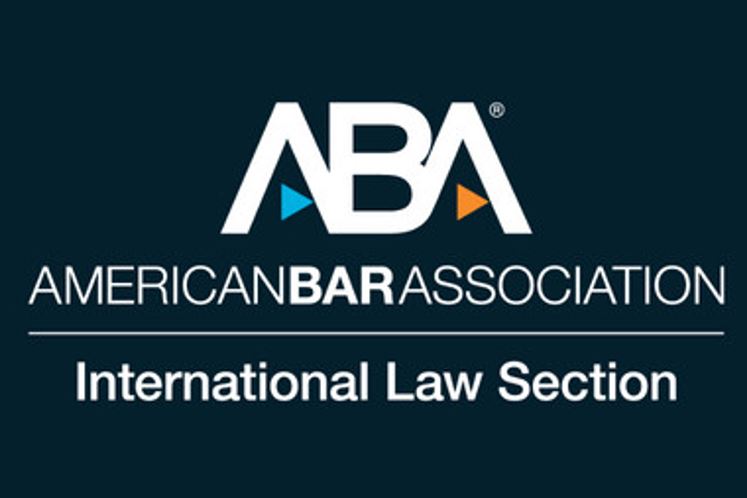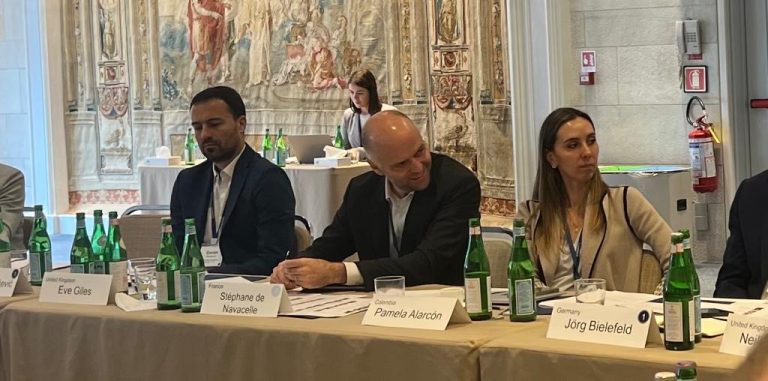I. Can allegations of corruption serve as a bar to jurisdiction of arbitral tribunals or admissibility of claims?
Section 1649 of the National Civil and Commercial Code (NCCC) provides that disputes in which public order is compromised are not arbitrable. However, legal scholars have widely criticized the ambiguity of this provision, and court rulings have consistently held that concerns about public order, or the applicability of public order rules to issue a decision, do not prevent a dispute from being arbitrated. Therefore, allegations of corruption made by the parties cannot serve as a bar to the jurisdiction of arbitral tribunals or admissibility of claims, as arbitral tribunal, in principle, have jurisdiction even when public policy rules are involved.
Due to the principle of autonomy of the arbitration agreement, under which arbitration agreements are a separate and autonomous agreement from the underlying contract and, hence, that the former’s validity is independent from the latter’s validity (Section 35, International Commercial Arbitration Law (ICAL) for international arbitrations, and Section 1653, NCCC for domestic arbitrations), parties allegations that the underlying contract is invalid due to corruption would not, in principle, invalidate the arbitration agreement. Moreover, due to the positive effect of the kompetenz-kompetenz principle, which grants arbitrators the power to decide on their own jurisdiction (Section 35, ICAL for international arbitrations, and Section 1654, NCCC for domestic arbitrations), if parties claim that alleged corruption invalidates the arbitration agreement, the arbitral tribunal has jurisdiction to decide on its own jurisdiction, and due to its negative effect, judicial courts must compel the parties to arbitrate disputes that are subject of an arbitration agreement, unless, (i) in domestic arbitrations, the arbitration has not yet started and the arbitration agreement appears to be clearly null or inapplicable (Section 1656, NCCC), or, (ii) in international arbitrations, it finds that the agreement is null and void, inoperative or incapable of being performed, at the request of one of the parties (Section 19, ICAL).
It must be noted that, under Argentine law, criminal offenses are not arbitrable, meaning that the arbitral tribunal’s jurisdiction is limited to deciding on, gr., the civil and commercial aspects of the claim involving corruption allegations. If a claim is totally or partially inextricably linked to an allegation of corruption, and civil and commercial aspects cannot be reasonably separated to issue a decision, the arbitral tribunal may find the arbitration agreement to be totally or partially invalid.
II. Can allegations of corruption affect the validity of an arbitral award?
Awards issued in domestic arbitrations in law are subject to the same remedies as judicial judgments according to Section 758 of the National Civil and Commercial Procedural Code (NCCPC). Thus, unless the right to appeal is waived, awards can be appealed and reviewed on their merits by judicial courts, including allegations of corruption.
Even if the right to appeal is waived, awards can be challenged on the grounds of nullity and that challenge cannot be waived when the award is “contrary to law” (Section 1656, NCCC). This provision has been criticized by the legal community as it could be interpreted to provide for an excessively expansive approach to the reasons to challenge awards. Case law has interpreted this provision restrictively, only allowing for domestic awards to be set aside exclusively on the grounds listed in Sections 760 and 761, NCCPC, which pertain only to procedural aspects, meaning that judicial courts are not allowed, in principle, to review the merits of the award when the appeal has been waived. Hence, when the appeal has been waived, the validity of the award, in principle, cannot be affected or challenged by allegations of corruption duly considered by the arbitral tribunal during the proceedings, unless the corruption allegations decided by the award are outside the scope of the arbitration agreement or are not arbitrable.
Awards issued in international arbitrations can be set aside (if seated in Argentina) or their enforcement denied (if seated abroad) if the award decides on criminal aspects of the corruption allegations and such decisions are found to (i) be outside the scope of the arbitration agreement, (ii) pertain to non-arbitrable matters; and/or (iii) be contrary to Argentine public policy (Sections 98 and 99, LACI for setting aside, and Sections 102 and 104 for enforcement).
For the purposes of public policy, case law has determined that the fight against corruption and money-laundering are part of public policy. Hence, if the award under scrutiny is deemed contrary to such objective, the award may be annulled, set aside or its enforcement denied; especially it is gives effect to a corruption pact. Judicial courts in such cases could review, in fact and in law, all aspects necessary to ascertain whether the award complies with public policy.
III. In annulment or enforcement proceedings, can the court review the award and the merits to determine whether corruption or related offences affect the underlying dispute?
As an act of corruption is deemed to contravene the public policy, judicial courts could review the award to determine whether corruption or related criminal offences affect the underlying dispute, and annul, set aside the award or deny enforcement if the award is contrary to public policy pertaining to corruption matters.
Judicial courts could also review jurisdictional aspects related to corruption allegations and decided in the award to determine if the arbitration agreement is valid or invalid.
IV. Can courts review corruption allegations which have not been raised in the arbitration?
Arbitral awards in international arbitration can be set aside or its enforcement refused if it is contrary to the public policy. Thus, judicial courts are not limited to the elements contained in the award, discussed in the arbitral proceedings, or by whether the issue was raised by the parties during the arbitral proceedings. Judicial courts can set aside or deny enforcement of awards ex officio if the award contravenes public policy, including in cases of corruption and money-laundering.
V. Do courts defer to the arbitral tribunal’s finding that no corruption acts were committed?
Under Argentine law, judicial courts can, in principle, review an award in full to analyse the arbitral tribunal’s jurisdiction and/or compliance with public policy related to corruption.
VI. Is there a standard of proof used by arbitrators and reviewing courts to assess the existence of corruption?
As far as we know there are no relevant cases in Argentina concerning corruption allegations in commercial arbitration.
The LACI, NCCC, and NCCPC do not have a specific, regulated process for establishing evidence of corruption in arbitration or judicial proceedings. Therefore, the general principles of Argentine evidence law apply, meaning that the rules of sound rational judgment are used to determine corruption based on the evidence presented. Any form of evidence is admissible, including witness statements and expert reports.
VII. Are arbitrators seated in your jurisdiction bound by criminal proceedings on issues that could impact the underlying arbitration dispute?
Argentine law does not have specific regulations governing the relationship between arbitration proceedings and criminal proceedings. However, the laws regulating the relationship between civil judicial proceedings and criminal proceedings could potentially be applied to arbitration proceedings; specially in domestic arbitrations, as awards issued in domestic arbitrations in law are equated to judicial judgement as they are subject to the same procedural rules on enforcement and remedies as judicial judgments (Sections 499 and 758, NCCPC).
Under Argentine law, civil and criminal judicial proceedings can be initiated separately (Section 1774, NCCC). However, if a criminal action precedes or begins during a civil case, the civil proceedings must be suspended until the criminal case is resolved, except for the following cases: (i) when the criminal case is terminated for any reason; (ii) if the delay in the criminal proceedings significantly hinders the plaintiff’s right to compensation in the civil case; or (iii) if the civil claim is based on strict liability (Section 1775, NCCC). The outcome of the criminal case has res judicata effects on the civil case regarding the facts constituting the crime and the guilt of the defendant (Section 1776, NCCC), meaning that if the criminal court determines that the crime did not occur or that the defendant is not responsible, these findings cannot be challenged in the civil proceedings (Section 1777, NCCC).
If the civil proceedings are not suspended, and a civil judgment is issued before a criminal ruling, the criminal ruling generally does not affect the civil judgment. A review of the civil judgment is possible only at the request of an interested party and in very specific scenarios, such as that the civil judgment has res judicata effects over issues resolved in the criminal judgment and the criminal judgment is subsequently reviewed on those issues, unless the review is due to a change in the law (Section 1780, NCCC).
VIII. Are remedies available when an arbitral tribunal rules that there is no evidence of corruption but subsequently a criminal ruling decides otherwise?
As explained above, a review of the civil judgment is possible at the request of an interested party and in very specific scenarios, such as that the civil judgment has res judicata effects over issues resolved in the criminal judgment and the criminal judgment is subsequently reviewed on those issues, unless the review is due to a change in the law (Section 1780, NCCC).


